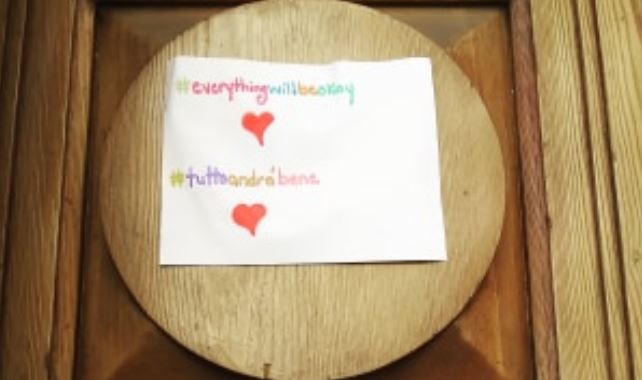Maria Luciana DiNino has been living in Italy for over a year. The Bedford native’s parents were Italian immigrants and at the age of 38 years old, DiNino quit her job and decided to teach English in the village of Pratola Peligina where her parents once lived.

“It’s in the Abruzzo region. It’s an hour and a half east of Rome and 40 minutes inland from the Adriatic,” DiNino told Global News by phone.
DiNino says last Wednesday she was teaching English in a nearby city when the news came that Italy would be going on lockdown. She said it was chaos in the city, which is home to two major universities.
“That’s the only time I went into panic mode, because I was at the train station and seeing all these people fighting to get on trains to get away.”
Since then she has mostly remained in her apartment, except to get groceries. Over the weekend the Italian government announced it would also be stopping public transportation.
“Every day there’s new rules,” said DiNino.
“The cops are stopping people because you need a permission slip to leave your house, even to do groceries, so we have these permission slips.”

Get daily National news
DeNino says grocery stores, gas stations and pharmacies remain open but only one person from a household is allowed to leave, and stores are limiting the number of people inside, requiring everyone to stay at least a metre apart.
She says the positive thing is that in her village, communities have banded together.

“We have a WhatsApp group, and on messenger we’re communicating with each other. Who has what? Who needs what? So everyone’s sharing their groceries around,” she said.
“I found Italians are really looking after the elderly people, making sure they come first.”
DeNino says she’s not sure when the lockdown will be lifted, with things changing every day.
She says while Italian culture is very much based on socialization, people are doing what they can to keep spirits up, even starting a campaign to keep people positive.
“It’s called ‘Everything’s going to be okay.’ Everybody’s putting these hashtag messages and putting them on their door saying everything’s going to be OK.”

DeNino says that while being isolated can be a challenge, she knows that it’s for the best for everyone, to keep the virus from spreading.
“At first people were like, ‘Oh, it’s just the flu affecting the elderly,’ but it’s not just the flu and it’s not just affecting the elderly. I don’t think Canadians are grasping that.”





Comments
Want to discuss? Please read our Commenting Policy first.